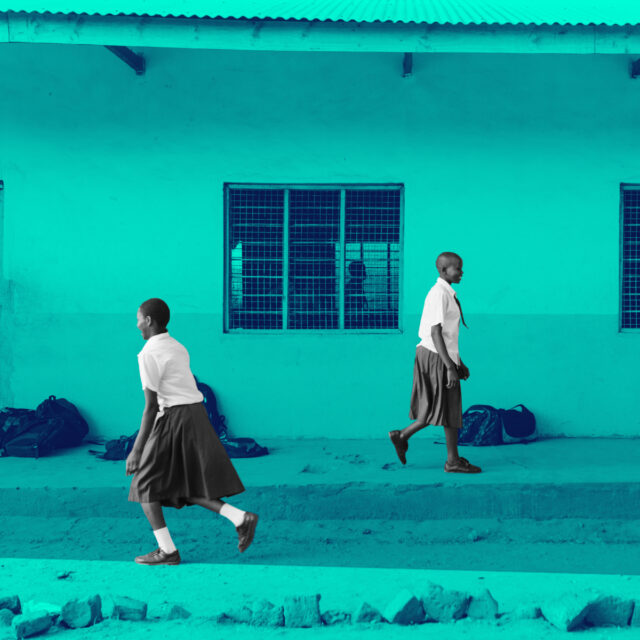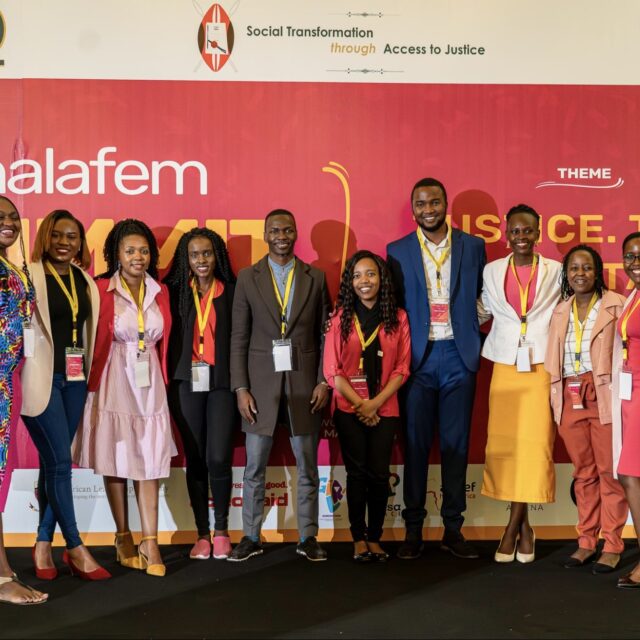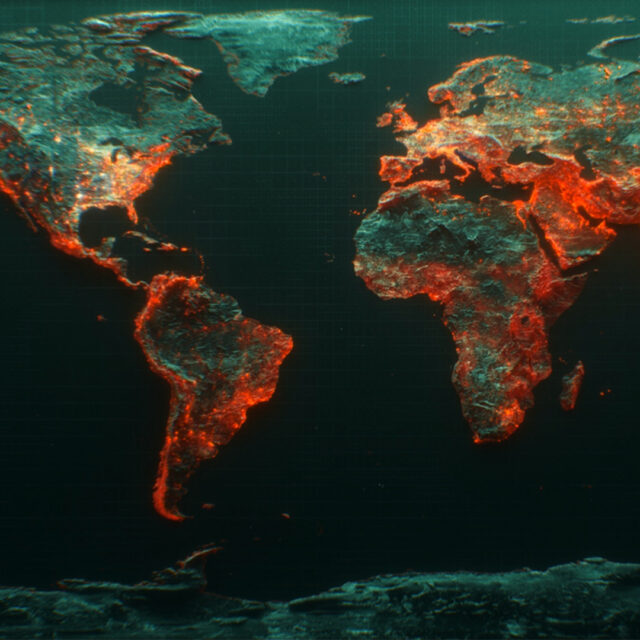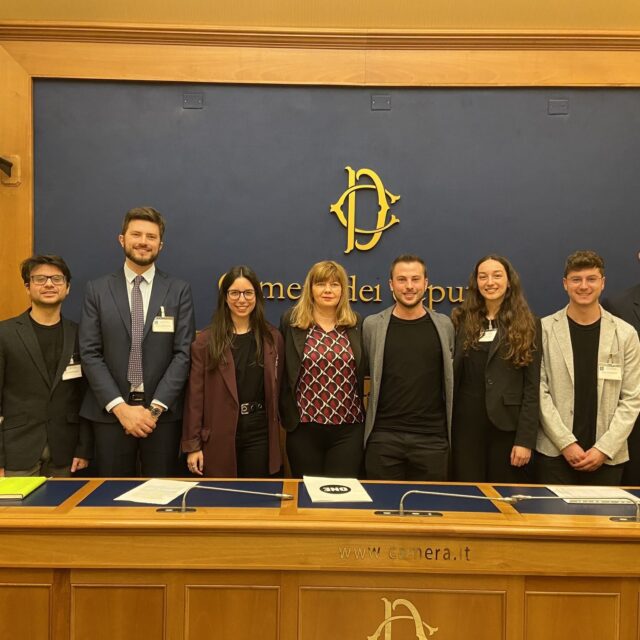As someone who is from a family of teachers I have always been interested in education, and have been appreciative of the opportunities and learning resources that I’ve had access to. When I was 18, I spent a year volunteering as a teacher in eSwatini, which opened my eyes to the wide global disparities in access to education. Seeing the impact of barriers to education on not just an individual child’s life but also on the whole country’s economic growth motivated me to become an activist with the ONE Campaign and to study International Development at University.
As a ONE Youth Ambassador, I have met with my MP, Harriett Baldwin, several times and have been inspired by her views as co-chair of the International Parliamentary network. Our conversations furthered my passion to campaign for investment in global education, and I organised an event for MPs alongside Kenyan activist Selina Nkoile.
With the Global Partnership for Education summit nearing (28 and 29 July), and having reflected on my experiences working with Selina and teaching in eSwatini, I was eager to reach out to ONE activists from across the world to find out more about their experiences. I really enjoyed speaking to people from all different backgrounds across the world and discovering their motivation for campaigning, as well as what issues are facing education in their country.
Whilst all the Youth Ambassadors and Champions I worked with had had different experiences, we all agreed on the significance of quality learning and that ultimately we must fund education if we are to achieve any of the SDGs and eradicate global poverty. Laura, UK
How has education been affected by COVID-19 in your country?
Regarding the universities, no provisions have ever been issued, but each university has acted in its own way, in compliance with the various restrictions. The same goes for schools, where different administrative choices have created differences between Italian regions and cities. Many students have missed school days due to poor organization of online classes or because they did not have the necessary means to be able to attend classes. Many high school students have abandoned their studies, due to the difficulty of connection and lack of concentration. Sara, Italy
COVID-19 and the online learning which we have had to adapt to has led to widen disparities in the UK. There are those who have had resources, internet access and dedicated parents to help them continue with their education and then there are those who have taken on more responsibilities during the pandemic or do not have reliable internet and so have struggled to stay on top of their learning. Laura, UK
Like almost everywhere, Covid has caused a sudden end to teaching at all levels. Even when alternatives have been found to allow the continuity of teaching, they have been limited to certain levels, particularly exam classes and higher education. The other primary and secondary levels, therefore, therefore have gone months without any courses or substitute support for the face-to-face system. This of course exacerbates any difficulties which learners and schools already had. Mariiyeem, Senegal
Education has been affected in the country where I live, Belgium, by COVID-19. For example, schools were closed so the students had classes online and when they were eventually open they were only partially open. Although university students have online classes, university libraries and some buildings remain open. Stephanie, Belgium
The lockdown has disrupted the academic calendar of educational institutions and widened the literacy gaps of children in rural communities. Onyeka, Nigeria
In March 2020, all schools were cancelled, and there were big problems in terms of the transition to a fully online education. All teachers were using different software and had different expectations, which meant that students were lost and didn’t know what to do. Eventually, it improved and now in university, the system is more suitable. Thibaud, France
What has inspired you to become passionate about global education?
I was very fortunate with the education I had growing up, but I was distinctly aware that others in my country and globally did not have access to these opportunities. I think that education is vital for both the future of an individual child, and also a whole country’s economic development, so for that reason we must promote access for all. Laura, UK
With the information received about the current state of the situation, it was obvious that we had to be mobilised and become advocates. We have a lot to lose as a society and as a country if nothing is done to support education for everyone. Mariiyeem, Senegal
I noticed that the absence of school for 3 months critically decreased my knowledge and my will to work. Therefore, I imagine that children without schools will never get a chance to learn properly and will not have a chance for a successful future. So, in short, the Covid crisis exacerbated the lack of education in developing countries and we must take action. Thibaud, France
What inspired me to become passionate about Global Education is that I had access to quality education and having access to it I realize how important it is. For me, education is thea first step in life that everyone should have the right to. Stephanie, Belgium
As a global citizen, education is the only passport to an interconnected world. Children in underserved and marginalized communities continue to be disadvantaged and disconnected due to economic inequality and lack of access to quality education. The aim of bridging these divides has been the inspiration behind my advocacy and intervention. Onyeka, Nigeria
I was inspired by Malala Yousafzai and her activism for all girls to have access to education. Until then I had not thought about how going to school was something completely normal for me but for other young people it is a dream and a privilege. Over the last few years I have got to know children and young people from all over the world who, thanks to their education, have secured a better future for themselves and their families, and have achieved incredible things. They themselves are a great source of inspiration for me. Sara, Italy
As ONE Champions/Youth Ambassadors how can we individually promote global education funding and access to schooling for all?
This year it is important that our countries make a strong commitment to the Global Partnership for Education (GPE), particularly because COVID-19 has exacerbated the global education crisis. As individuals we can speak to our MPs and explain why they should support the UK making a strong pledge at the summit in July. Laura, UK
Individually we can support the ONE campaign through our different networks and circles. We must talk about it around us, educate our relatives and friends on the issues and thus create a strong collaboration that will facilitate action at all levels. Mariiyeem, Senegal
I sincerely believe that all of us have an important power, first by informing and raising awareness in our social circle. We can also convince MP’s and talk to the media in order to pass laws helping schooling. Only states have power to concretely act, but we have, as citizens, power to influence the state. Thibaud, France
I think we must start to talk about the issues to those around us. Talk about it on social networks, talk to our mayor for example, to the municipality of our city and to see what we can do together. Because words are not enough, we need real actions. Stephanie, Belgium
We must hold our government to account and advocate for an increase in budget allocation for education. Also, multi-stakeholder engagement is necessary to ensure effectiveness. Private and corporate organizations should be encouraged to advance access to education as their Corporate Social Responsibility policy. Onyeka, Nigeria
We must continue to support ONE’s campaigns and put pressure on the various influential politicians to take responsibility and act accordingly. On an individual level, I think that awareness-raising activities are really important, both in schools and universities and with citizens in general. But above all, it is essential to support the various organisations and associations that fight every day, all over the world, to ensure access to education. Sara, Italy
What is your hope for global education by 2030?
I would like to make sure we are seeing quality education by 2030. I hope that the focus will go beyond just getting children into school, to also ensure that teachers are trained, facilities are adequate and that parents understand the significance of educating their child. Laura, UK
G7 leaders must endorse the two global goals on girls’ education set by the UK. That is, to ensure that 40 million more girls have access to school and that 20 million girls will be able to read at the age of 10 by 2025. Mariiyeem, Senegal
I hope that in 2030, more efforts will have been done to open schools, and educate teachers in developing countries. My hope is that these countries in need gain independence and develop their own system of education with the help of the international community, so that the majority of children, particularly girls, can go to class. Thibaud, France
I would like everyone who wants to have access to education to have access to it. Let people who cannot access it due to a lack of money be helped. That those in the so-called “less developed” countries can improve their education system to allow girls as well as boys to attend school. Stephanie, Belgium
My dream is that come 2030, every child, irrespective of background, will be equipped with lifelong skills for learning and opportunities. Onyeka, Nigeria
Education cannot and absolutely must not be a privilege for the few and I hope that by 2030 as many children as possible will have free access to at least primary and secondary education. We know how fundamental education is; I sincerely hope that more investments will be made and that it will become a priority for governments and international organizations. Finally, I hope that school will become a safe and inclusive space, without gender stereotypes, where each individual can grow, learn new things and develop their own critical thinking. Sara, Italy
How you can Help
As world leaders meet to come up with a global response to the learning crisis, join us in asking them to invest in quality education for all children, regardless of where they live. Because the children of today, are the leaders, doctors, and scientists of tomorrow.



